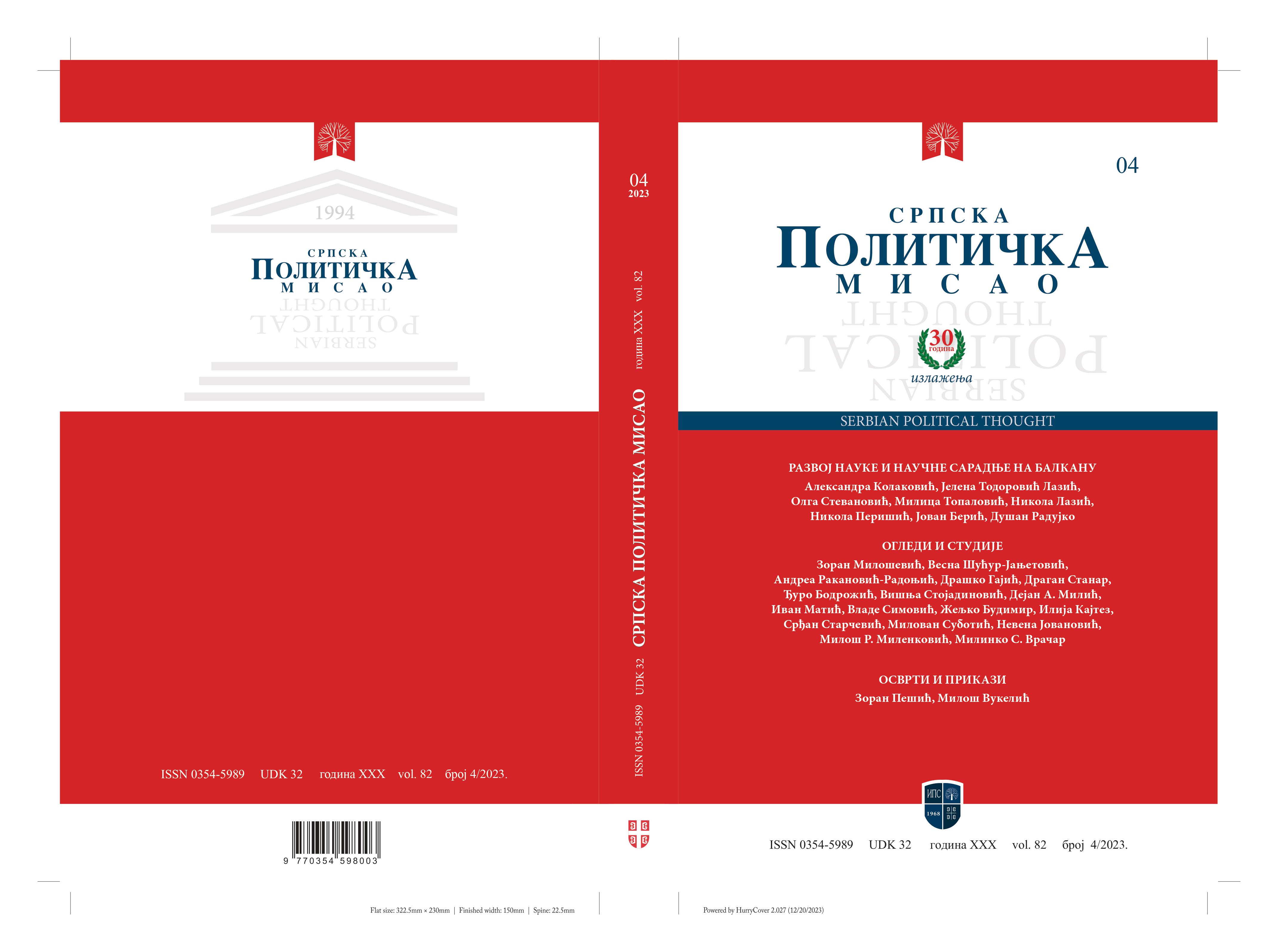Pozitivno vs. negativno shvatanje slobode: Političke implikacije
Sažetak
The subject of this paper is the analysis of the political implications of the distinction between positive and negative understanding of liberty. The author first explains the relevance of this topic within the framework of contemporary theoretical and political discussions. The starting point of this paper is Berlin's distinction between the concepts of positive and negative liberty. In the first part of the paper, the author will deal with the implications of this difference regarding the type of socio-political system and political culture. In this sense, the author will try to show that the democratic concept of liberty is positive liberty, while the classical liberal understanding of liberty is negative. In other words, the relationship between positive and negative liberty reflects on the relationship between democracy and liberalism; this relationship implies possible compatibility, but also potential opposition. In the second part of the paper, the author deals with the implications of the difference between the two concepts of liberty concerning distinctive models of democracy. Referring to Riker's thesis, the author's goal is to show how a positive understanding of liberty leads to a populist model of democracy, while on the other hand a negative understanding leads to a liberal model. The difference between these models of democracy is also reflected in the attitude about whether democracy has instrumental or intrinsic value.
Reference
Arrow, Kenneth. 1963. Social Choice and Individual Values. New York: John Wiley & Sons.
Berlin, Isaija. 1992. Četiri ogleda o slobodi. Beograd: ,,Filip Višnjić”.
Bobio, Norberto. 1995. Liberalizam i demokratija. Beograd: Zavod za udžbenike i nastavna sredstva.
Crowder, George. 2004. ”Galston’s Liberal Pluralism.” Australasian Political Studies Association Conference. University of Adelaide.
Hajek, Fridrih A. 1998. Poredak slobode. Novi Sad: Global Book.
Humboldt, Wilhelm von. 1969. The Limits of State Action. Cambridge: Cambridge University Press.
Lajphart, Arend. 2003. Modeli demokratije: Oblici i učinak vlade u trideset i šest zemalja. Podgorica: CID.
Riker, William H. 1982. Liberalism against Populism: A Confrotation Between the Theory of Democracy and the Theory of Social Choice. Waveland Press.
Riley, Jonathan. 2002. ”Defending Cultural Pluralism: Within Liberal Limits.” Political Theory 30: 68–96.
Rols, Džon. 1998. Politički liberalizam. Beograd: ,,Filip Višnjić”.
Ruso, Žan-Žak. 1993. Društveni ugovor. Beograd: ,,Filip Višnjić”.
Sartori, Đovani. 2001. Demokratija - šta je to? Pogorica: CID.
Stančić, Višnja. 2020. ,,O opravdanosti distinkcije između pojmova pozitivne i negativne slobode.” Doktorska disertacija. Univerzitet u Beogradu: Filozofski fakultet.
Stupar, Milorad. 2015. ,,Rusoovo shvatanje ,,opšte volje” i savremena stanovišta o prirodi demokratije.” Theoria 58 (4): 139–148.

